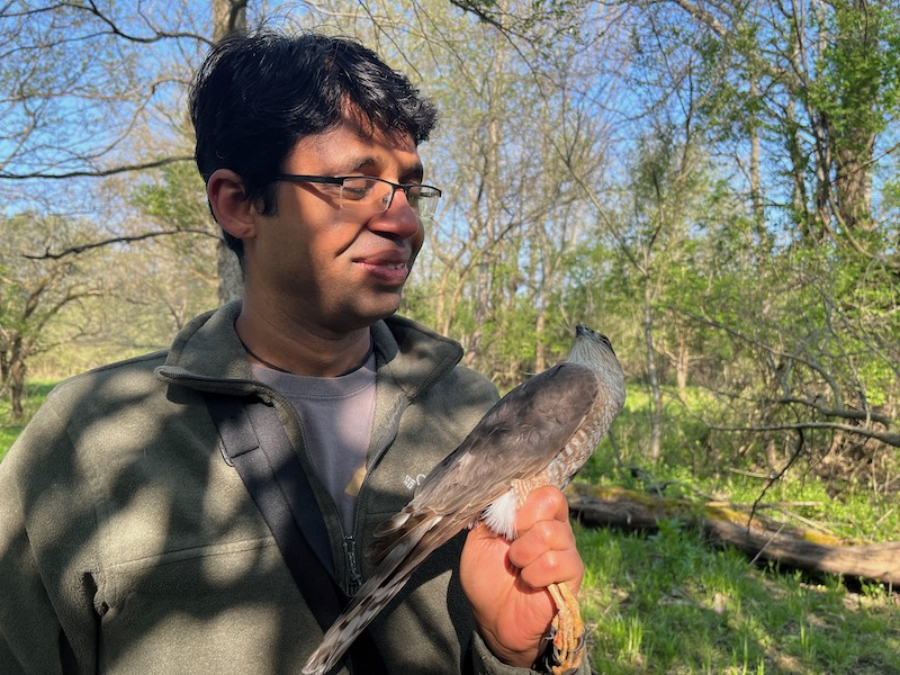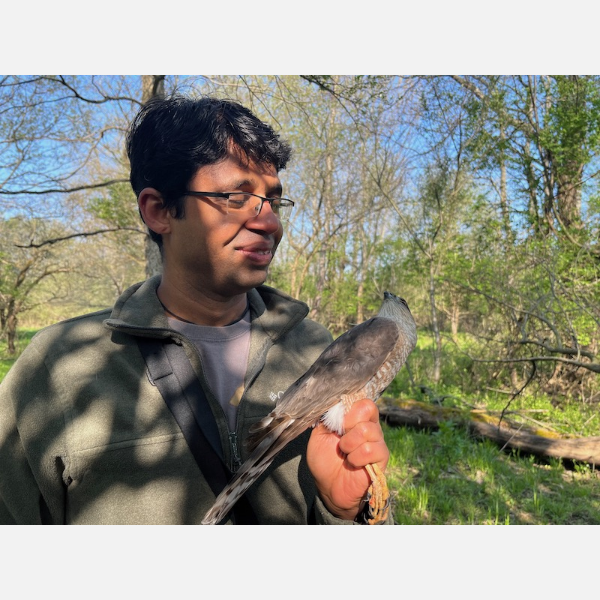How Bradley biology students plan to bring conservation science to the masses
When Anant Deshwal publishes his latest academic paper on ecology, wildlife conservation or biology, he knows his parents won’t read it. His brothers don’t bother, either. Friends? Not a chance.
“It’s not written for the general public; it’s written for biologists, with biologists in mind,” said Deshwal, an assistant professor of biology at Bradley. “That makes those research papers kind of inaccessible to non-biologists.”
But Deshwal believes the topics and findings behind those research papers garner more interest from non-academics than ever before, especially in the popular medium of nature documentaries. Deshwal and the students in his research lab (Bradley University Lab of Conservation) work to solve various conservation issues based on the ecological data they collect. Deshwal plans to showcase that work to a wider audience now.
“Conservation is not something that is only done by biologists. It is done more by non-biologists than biologists. It is humans as a collective who work for or against conservation.”
“How do we reach this collective? By speaking the language that reaches the maximum number of people.”
Deshwal is teaming up with a documentary production company called Wild Excellence Films and The Nature Conservancy to produce the nature documentary on conservation, climate change and the relationship people forge with the land in the Midwest. Currently, the project is in the fundraising phase of production.
The planned documentary will present Bradley students with a special opportunity, featuring student-led research and even giving students the chance to appear on camera.
Deshwal also intends to use the series as a vehicle to further attract students to Bradley’s biology program and supply a blueprint toward what careers in the ecological and conservation field may look like.
“Oftentimes the students are unaware of a possible career in ecology and conservation and end up following an alternative career path” Dr. Deshwal said. However, after attending his lectures, labs or by participating in the research being done by his lab they meet with him and say, “this is exactly what I’ve always wanted to do, but never knew how.”
“Through this documentary…we show them that you can come to Bradley and follow your dreams.”
For Deshwal, communicating the scientific findings of conservation to the people outside the sphere of biologists is vital and exciting. A native of India, he himself left a career as a civil engineer to become a wildlife conservation biologist and brings a passion for the subject to his research and lessons in the classroom.
He’s also grown to love the Midwestern landscape, after stints living in Arkansas and Tennessee before arriving in Illinois. Deshwal sees the forthcoming documentary as a way to further amplify its superlative traits.
“We have often compared beauty to either mountains or to oceans and lakes,” Deshwal said. “I find this landscape extremely beautiful. The mosaic, the interplay of agriculture and tall grass prairies is quite fascinating.”
— Thomas Bruch
Like this story? We've got lots more at Here's the Latest.





